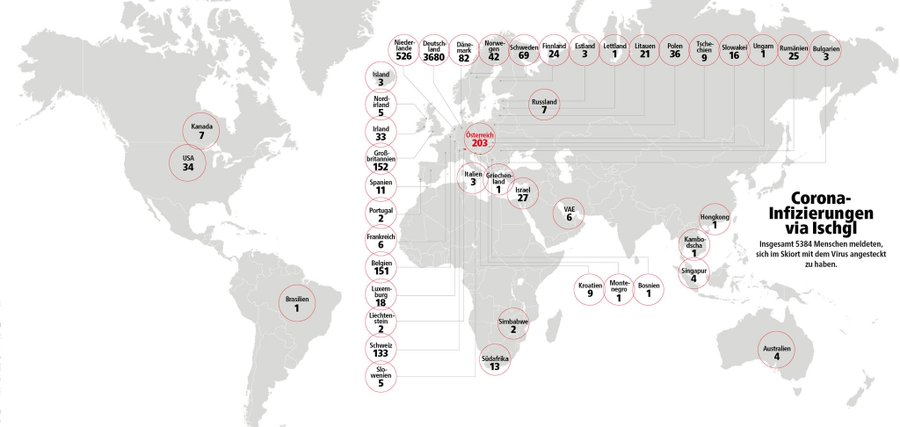The Pandemic as Smart City Laboratory
21 June, 2020 - 10:37 by felixI really think anyone who makes predictions now is a fool.
It's a little bit like trying to predict the future of foreign policy in October 2001.
Evgeny Morozov, interviewed by Holly Herndon & Matt Dryhurst, May 11, 2020.
The Covid-19 pandemic is both an urban and technological phenomenon. 95% of all diseases have so far been registered in cities. From the starting point in Wuhan, via the metropolitan region of Lombardy, Paris, Madrid, New York, Rio de Janeiro to Moscow, the virus spreads mainly within large cities. This is hardly surprising, since not only does the higher density favor the local spread of the virus from person to person, but the virus also arrives first in the large cities. They are the central nodes of the hypermobility of people and goods that characterizes the neoliberal phase of globalization. From this perspective, tourist hotspots like Ischgl are temporary cities in the mountains. Whether the hypermobility, which has been largely brought to a standstill at the moment, will be fully revived is not yet clear. That the global trend towards urbanization will be broken is very unlikely. So much can be confidently predicted.
Map of all the 5384 people whose Covid-19 infection could be traced back to the ski resort of Ischgl, Austria. (Source)






















